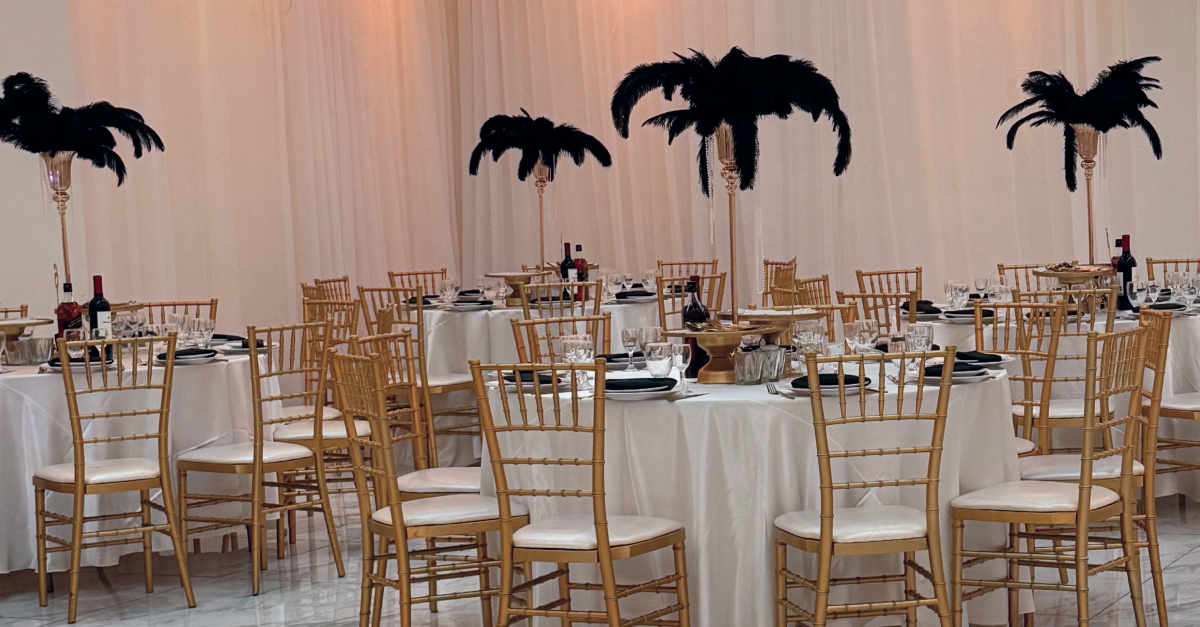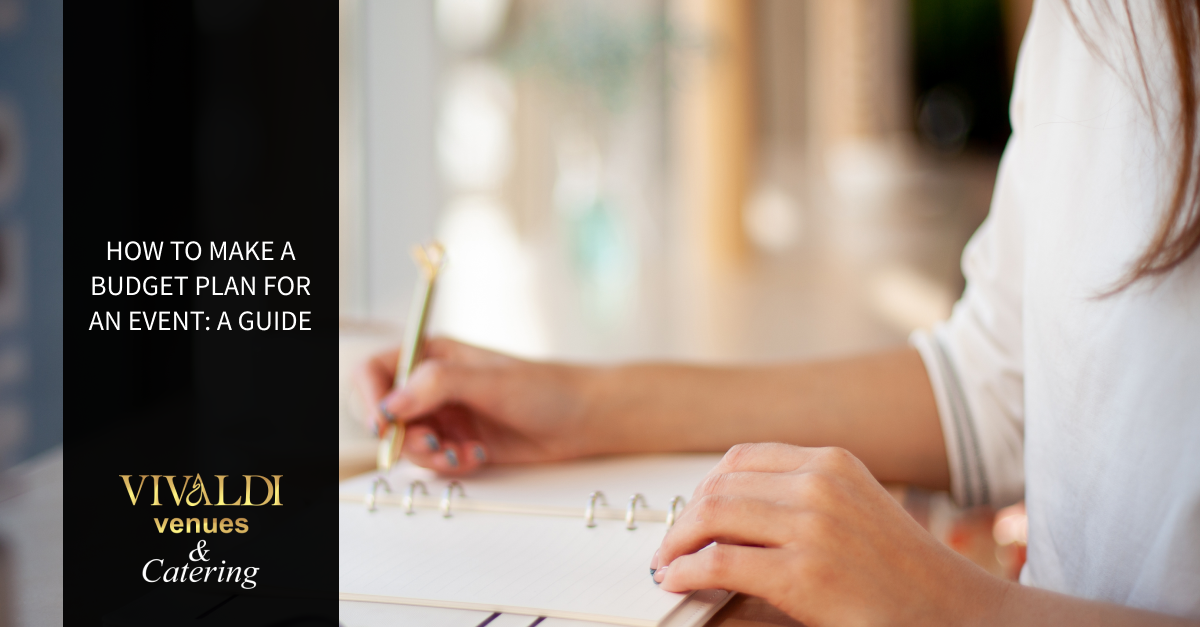Are you hosting a celebratory event soon? Surprise, surprise — you need to get started with an event budget as soon as the dates are confirmed. Event budgeting should be your priority because it affects everything, from the number of guests you invite to the catering menu you choose, and even the venue in Los Angeles that you rent.
That said, creating a budget for an event takes careful consideration. You may need some help getting started, especially if this is your first time hosting an event or planning a grand celebration. And, to help you out, we’ve drawn up a simple but helpful guide.
Why Do You Need an Event Planning Budget?
There are many reasons why you need budget planning for an event.
Having a fixed budget gives you a starting point for all your plans. You can decide the scale of the celebration depending on your budget.
Take, for instance, a bridal shower — a foolproof budget plan ensures that all the invitees are on the same page as far as the spending is concerned and ensures a hassle-free execution that does not leave anyone in a financial lurch.
On that note, a strict budget is a good way to make sure that you’re not overspending on your event planning expenses. Without a fixed budget, it’s very likely to lose track of spending.
Besides, you can easily allocate a fixed percentage of your budget to different aspects of the event, such as venue, food, transportation, etc., without getting overwhelmed.
In short, creating a budget for an event helps you stay organized and makes a great deal of financial sense, even when you’re planning a large-scale event with a triple-digit guest list.
How to Create a Budget for an Event
Just follow these steps, and you’ll be all set to do budget planning for an event.
1. Decide the Kind of Event You Want to Host
First things first — you need to decide the kind of event you want to host. Will it be an intimate gathering of select family and friends? Do you want a larger-than-life extravaganza for a milestone celebration?
Once you are sure of it, think about how much you can afford to spend on the event without blowing up your savings.
While this may not always be the case ( think weddings), in most instances, you need to consider additional financing choices you have before locking in other details. Sort your financing before finalizing your overall budget. Your budget should be realistic enough for you to afford.

2. Categorize Your Budget
Once your event budget is locked in, it’s time to allocate it to different aspects of the event. As a rule of thumb, you should allocate:
– 20% to the venue
– 20% to catering
– 10% to decor
– 15% to entertainment
– 10% to invites, logistics, etc.
The remaining 25% of your overall budget should always be kept aside as a contingency fund, keeping Murphy’s Law in mind. Jokes apart, it’s never a good idea to exhaust your budget. A safety net is important, even if you’re making a budget for party that will only be an exclusive gathering of a handful of people.
Always remember, a foolproof budget plan for an event should account for everything.
Each category of event budget mentioned above can be grouped into fixed and variable costs. Grouping them will help you keep track of your spending and ensure that you’re not overspending on any of the non-negotiables.
Say you’re renting a banquet hall in Los Angeles. It’s a fixed cost because you know how much the rent is and that’s the amount you’ll pay. However, the catering in Los Angeles will vary as your guest list changes.
Once that’s done, prioritize the expenses in your event planning budget.
3. Account for Everything
How to manage an event budget? Itemize your expenses. That’s event budgeting 101.
Make an Excel sheet of your expenses and update it every time you spend money finalizing just another detail of the event. Excel sheets come in particularly handy because of the readymade formulas and all the other shortcuts they offer.
You can also opt for online budget planners with built-in templates. Plenty of such budget planners are available for free. Take your pick depending on convenience and usability. But do not skip tracking your expenses.
4. Plan Everything Well Ahead of Time
When you’re learning how to create a budget for an event, time is of the essence. Start making your plans at least a year before big events and one to six months for smaller celebrations. Having time on your side is a big deal because if things go south, you will have ample time to make course corrections.
This is especially true for events that take place during peak celebration season. While you are at it, don’t forget to get help. Even when you know how to plan an event budget, sharing the responsibility is often the best way to get things done faster and with greater efficiency.
Don’t forget to delegate after you are done with your event budget.
For example, if you’re throwing a bachelorette party for your best friend, create a group of their closest friends and allocate tasks to each of them. Assume the role of the supervisor when you plan an event in Los Angeles, but don’t burden yourself by doing it alone. It doesn’t matter if you need help researching medium sized venues near you or if you’re trying to figure out how to calculate catering portions — having a little extra support can make the process much easier.
Choose Vivaldi Venues & Catering for Your Event
Now that you know how to plan a budget for an event, make sure you choose an event partner who can bring your vision to life. Whether you are looking for large venues in Los Angeles for a wedding or small event venues near you, we can help you with venue, catering, and service.
Get in touch with us today to learn how we can make your next event a huge success.

